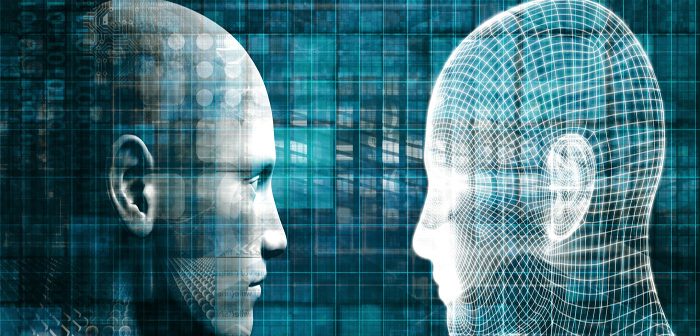A new survey finds most organizations are lacking when it comes to preparing for AI.
By: Andrew R. McIlvaine | June 29, 2018
AI活用が生活に浸透しつつある中、AIを仕事に活用することには壁がまだ存在する。
この壁を乗り越えるためには、そのための研修が必要である。AIを十分に活用するための研修を企画することを考えていますか?
As you may know, artificial intelligence has the potential to dramatically reshape the employee experience and the nature of how work gets done. Many people seem more than OK with this: The results of a new study by Oracle and Future Workplace do, in fact, reveal that 93 percent of the 1,320 HR leaders and employees polled say they would trust orders given by a robot at work.
The study, AI at Work, finds that most people (70 percent, according to the survey) are using some form of artificial intelligence in their personal lives (think Alexa and Suri), so it stands to reason, perhaps, that folks are feeling more comfortable about potentially working side by side with (and perhaps taking orders from) an automated colleague. However, the findings also reveal that companies are doing little to prepare their workforce for an AI future: A mere 6 percent of HR professionals are actively deploying AI and only 24 percent of employees are currently using some form of AI at work.
Most of the respondents agree that AI will have a positive impact on their organizations: 59 percent of employees believe it will improve operational efficiencies, while 50 percent believe it will enable faster decision-making, 45 percent say it will reduce costs and 37 percent believe it will improve the employee experience. HR leaders believe it will improve learning and development (27 percent), performance management (26 percent), compensation and payroll (18 percent) and recruiting and employee benefits (13 percent).
Nevertheless, the overwhelming majority (90 percent) of HR leaders are concerned they won’t be able to adjust to the rapid adoption of AI as part of heir job and 72 percent say their organization does not provide any form of AI training. HR leaders and employees identify cost (74) as the main barrier to AI adoption at their organization, while 69 percent cite failure of technology and 56 percent cite security risks as the other major hurdles.
“AI will enable companies to stay competitive, HR leaders to be more strategic and employees to be more productive at work,” says Dan Schawbel, research director at Future Workplace. “If organizations want to take advantage of the AI revolution, while closing the skills gap, they will have to invest in AI training programs. If employees want to stay relevant to the current and future job market, they need to embrace AI as part of their job.”
▼提供記事はこちら
プロフィール

グラマシー エンゲージメント グループ株式会社 代表取締役 ブライアン シャーマン
米国ニューヨーク市人事コンサルティング会社にて日系企業(NY・LA)を対象に人事コンサルタントとして従事。その後米国住商情報システムにて人事総務部長に就任。在米日系企業が抱える人事の現場を内と外の視点で支える。来日後は株式会社ファーストリテイリングでのグローバル人事業務に参画。欧米露アジア拠点の人事マネジメント業務に従事。2010年グラマシーエングージメントグループ株式会社設立。現在は、日本企業の人事のグローバル化をサポートするコンサルタントとして活躍中。
米国ニューヨーク州出身、米国Williams College卒業
2007年にSHRM、Senior Professional Human Resources (SPHR)資格取得、早稲田大学トランスナショナルHRM研究所 招聘研究員





